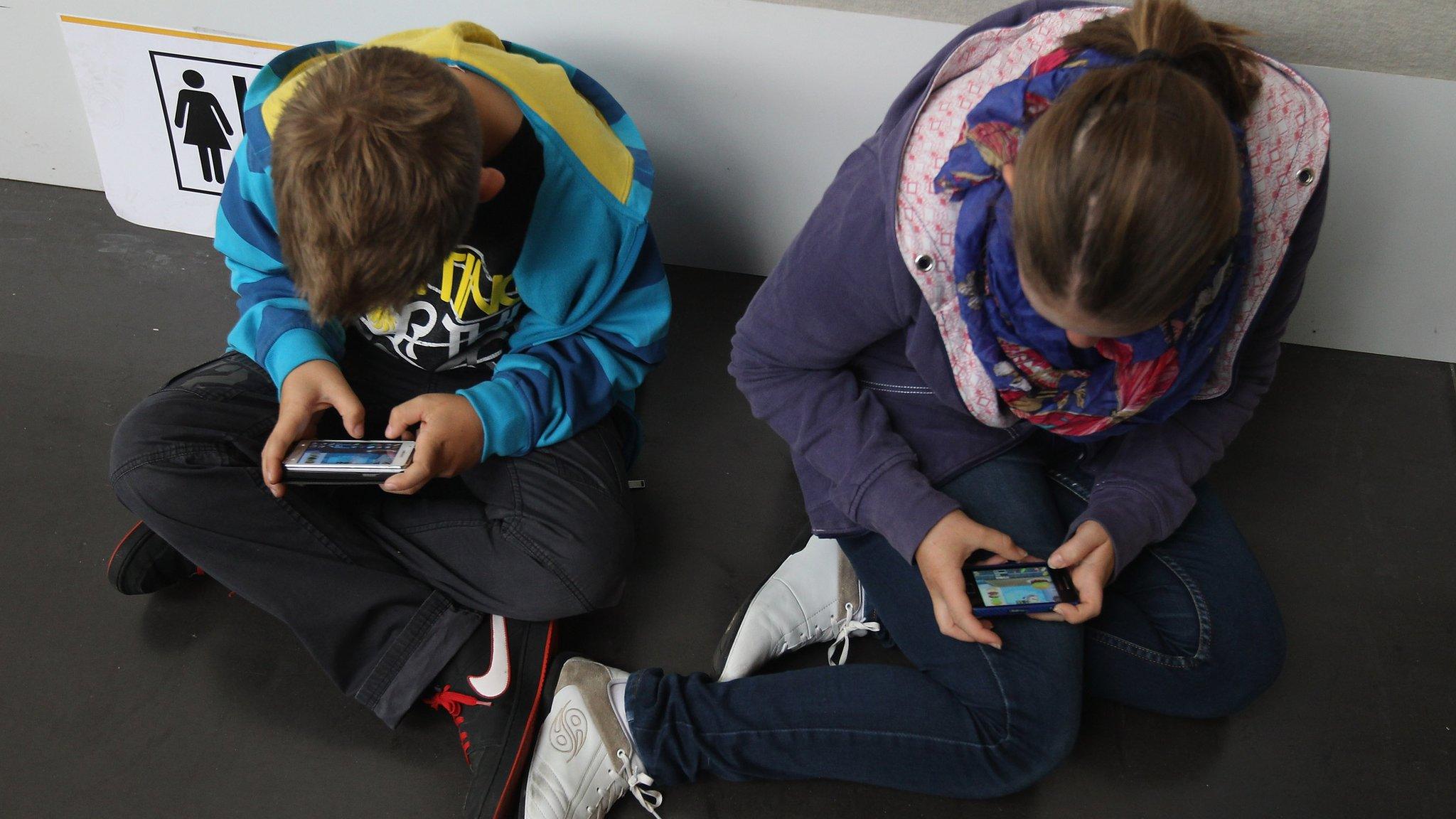Mobile addiction: School's phone-free Fridays to help pupils
- Published

One pupil, Kate, was an early adopter of phone-free Fridays, brought in after Simon Hill's assembly on addiction
Teenagers are routinely described as being glued to their mobile phones but at one school they have volunteered to hand them in to teachers once a week.
Christ College Brecon brought in "Phone-Free Fridays" after holding an assembly looking at research into the addictive nature of phones.
Initially it was the pupils' choice to hand them in, but as so many took part it has now become school policy.
Teacher Simon Hill said pupils had become more conscious of their habits.
Mr Hill, deputy head at the private boarding and day school in Brecon, Powys, said he had started to pay closer attention to pupils' use of phones after reading research on the addictive nature of phones.
He held an assembly earlier in the school year to highlight the issue and in follow up conversations with students found that they also had concerns.

There are concerns about the amount of time teenagers spend on their phones
"We have done a lot of reading on the impact of mobile phone use. It concerns us, the anxiety, social isolation, loneliness, not only the use of the phone itself but the social media that comes with it," he said.
"We discussed it with the pupils. We have got a pretty open-minded group of pupils here."
Following feedback, the school decided to ask pupils if they would voluntarily hand in their phones to their head of house for the day on Fridays.
Mr Hill said: "It isn't seen as a punishment but as an opportunity to try something new.
"There was talk of almost the release, the freedom it created. It was only one day, so it wasn't too onerous for them."
Pupils have reported feeling more able to focus during homework time and revision.

Pupils have responded positively to leaving their phones alone for a day at Christ College in Brecon
Mr Hill added: "The other area of real concern over phone use and social media was sleep deprivation; the golden hour before bed and the importance of being technology free."
About half the school's pupils are boarders, and while younger pupils have always had to hand in phones overnight, the older ones have been doing the same on Friday nights since the initiative started.
Mr Hill said they were as much interested in teaching the children the importance of how they used their phones as the length of time they spent on them, and helping them build "digital resilience" to self-monitor usage.
'Sit down and chat'
Kate was an early adopter of the policy, finding it easy to do so as so many other pupils were doing the same thing.
"The whole house started handing in their phones. I found people meeting to use the common room more and sit down to chat," she told BBC Wales.
She said the move to make the policy compulsory had not met with any resistance from the few pupils who were not already taking part.
Kate has found sometimes it is not just about the actual time on the phone that is the issue but even having it with her can be distracting when she is trying to work, something which became clearer once it was not always with her.
"I think now that we don't use them at all on the Friday means we'll quite often not bring the phone with us to lessons [on other days]," she added.
"You realise it's redundant to have it in your pocket all day.
"It's made you think, why do you need to bring it with you?"
- Published22 May 2019

- Published27 July 2018
- Published2 August 2018

- Published2 August 2018

- Published8 January 2018
